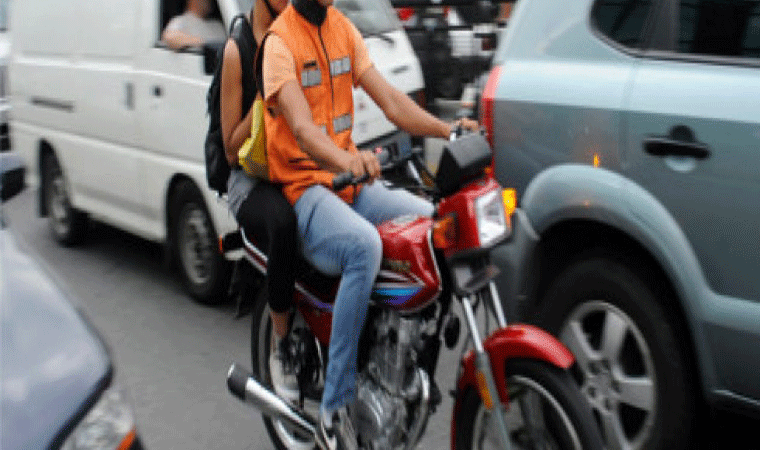As has become customary, I will begin this post with a disclaimer: I live in a smaller part of Colombia, not in Bogota. I live in a place where foreigners are still a novelty – yes, that word is very appropriate in this case. If you go to most places in Colombia, expect an array of questions and curiosity, regardless of the situation you might find yourself in, particularly if you find yourself in a less metropolitan place.
Still, there is something you must keep in mind: Colombian culture is a communicative culture. It is a verbal, expressive culture, to such an extent that you have to be careful not to take things at face value because being expressive also means being exaggerative at times. Especially in the coast.
I’ve traveled in other parts of Colombia, but the daily experiences have been had living in Valledupar, Colombia. If you happen to end up in these “wild west” areas for tourists, knowing the language spoken is so essential, even if you’re starting with the basics. Here you will build up that base, which is the value of avoiding the more tourist- and foreigner-populated areas. If what you’re looking for is authentic experiences and interactions, you will find them here. However, you might not always like it.
The experiences I’ve had where language has been essential are more numerous than I expected. As a somewhat reserved person, I wasn’t expecting to need to speak to strangers every time I leave my house. However, that’s what you should prepare yourself for, even if what you’re saying are simple greetings.
In the street, people will greet you. Seems normal, but if you are introverted or used to living in big cities, it can be off-putting to be rushing down the street a wreck to get to work while people are telling you good morning and asking how it’s going. However, your needs for Spanish vocabulary are basic, obviously, returning the gesture is more than enough under most circumstances.

Unless those simple greetings are accompanied by catcalls. They can be as seemingly harmless as “my beautiful queen” (mi reina hermosa) to more grating like “uy mami me das ganas de pecar” (mami you make me feel like sinning – yeah wishing I was making this up but it happens). The response here can be as simple as a glare or a non-response, gracias if what was said was actually a genuine, non-cringy compliment and you feel like it merits thanks, or a straight up comeback such as, Y calladito te ves mas bonito (“And you look nicer with your mouth shut”). It really depends on your mood what level of Spanish you need for this daily encounter, but the point is, as a woman, you need to prepare yourself for the daily reminder that you are female-presenting and are outside walking around, whether you go out looking like Miss Universe or roll out of bed sick and go out in basketball shorts and a big t-shirt (speaking from personal experience – yes, really). Catcalls get old, but there are other interactions with mostly men you will have ahead of you, such as…

Taxistas. Even in smaller cities or towns, people that don’t have cars are given options in the form of taxis – either of the traditional yellow variety or mototaxis. Mototaxis are literally just that – motorcycles driven by random men with no special markings. Sometimes they come in “uber” form, but the only app for that is whatsapp. They have no signs or distinguishing features usually since I’m not sure they are technically legal, but if you notice a motorcyclist honking at you like crazy, he is probably trying to get your attention in case you are a potential passenger – not because you’re attractive. So despite all of the catcalling, this is actually less cringe-y.

So whether regular taxista or mototaxista, expect to have the using “I’m going to…” conversation regularly. But, not only that! Make sure that you have some idea of the landmarks near where you are going. If you expect them to understand a simple address you are dead wrong. Unless it’s a very straight-forward destination that everyone recognizes, then just the name of the place might be sufficient. But as a rule of thumb, I like to have a general idea of what is around the place I’m going, aside from the Barrio – which is more than just a basic sentence. Be prepared to get a lot of practice there.
Then there is the often inevitable conversation that is had with the taxista. Sometimes this happens even when you try to bury yourself into a chat conversation in your phone (which may or may not be genuine depending on if you have data or not – the all-inclusive unlimited text plans aren’t as common here). The questions usually touch on the same familiar territory, so you will be better at this form of small talk before you know it. It usually starts with, “You aren’t from here, are you?” and ends with “So what do you think about that President Trump?” That part might be hard for a new arrival, but hope for that outcome and not the “Why aren’t you married? Got any kids? And your husband? You thinking of marrying a Colombian guy? Could it be me?” route. Oh, yes, most taxistas are male, so that it takes that turn at least once is absolutely guaranteed. Fun.
If you thought you might be safe from verbal/aural overload once you reach your destination, well, I’m sorry to inform you that you are completely wrong. When you go shopping, especially if it’s downtown or in a local tienda, expect to be pummeled with questions. What are you looking for, how can I help you, etc. What you would expect, of course. But if you’re going clothes shopping or more likely window shopping, they probably won’t accept a “just looking” response. I’ve been followed around a store as I literally walk about aimlessly hoping they will get bored before exasperatedly turning and saying, “Look, I literally am just looking, and now I’m leaving.”

In the tienda, you might need to go with a list prepared. I’ve gone so many times only vaguely knowing what I want, and I literally forget everything because they put me on the spot. Obviously not everyone is as flighty as me, but if you are still in the learning stage of Spanish, expect you will need to communicate what you need. And clearly. I once asked for meat, but I was expecting to be shown a portion, not asked how many pounds (libras) I would like. I had no idea and gave away my foreignness by asking for a reference. You see, I think in the States we get used to shopping visually, the typical supermarket experience where you walk up and down aisles picking and choosing what you need, looking at everything unhurriedly. But if you want to get things cheaper, you will want to shop locally, and if you shop locally, you will be expected to rattle off everything you need – while competing with other Colombians to speak. And costeños will speak over you, and in this case, the first and the loudest gets the fastest service. Facts.
The pharmacy or drug story (drogería as it is called more commonly in Colombia) is another challenge. You see, if you have a prescription, it is pretty much the same as in the states – you show the paper, they give the medicine, you done. But in Colombia, drug stores don’t rely on prescriptions alone. In fact, you can find independent pharmacies like la rebaja and la receta on pretty much every corner downtown. There are a few big pharmacies that resemble CVS and Walgreens in the states like Farmatodo but most of them are smaller cornerstore deals.

Just like in the tienda, don’t expect calm browsing. Introverts are probably feeling uncomfortable. “You mean I have to describe all of it to the pharmacist?” Well you can go the route of describing your symptoms, because let’s face it: coming to a new country means not always knowing the exact equivalent of every daily item branded under a different name in the states. Tylenol exists, but it has different, more common generic forms like Acetomenofen, the scientific name which most Colombians know regardless of the brand. Most medicines I associated with brands which only exist in the states, I realized. Knowing a brand might be useful when dealing with toothpaste, for example. Colgate is even a “pasta de dientes” replacement – however you need to pronounce it in Spanish: col-ga-te, syllable by syllable, like it’s spelled, otherwise they will stare at you in blank confusion. And so it goes with most everyday products, like hair styling brands, which are still common here. Pharmacies here have all of the products under glass in the display counter where you have to request them in order to receive them from the pharmacist, which is where knowing exactly what you are looking for comes in handy. Not all of the products will actually be visible in the display counter, and some pricing or brand options and preferences will be offered. Cuidado!
But as you can imagine, linguistic adaption takes time, but with time, it comes. So don’t get too overwhelmed if you are imagining how you will handle all of these very direct, verbal situations. Daily you will be immersed, and if you are going to live in another country in order to learn the language, that is ideal. My fluency has increased so much, even if my reserved nature has only slightly shifted, so there’s that!
Sometimes funny, sometimes scary, often a challenge, using Spanish in the coast of Colombia is a reality you should expect and take advantage of because it will make you more confident using the language.
![Nómada [con] Rumbo](https://nomadaconrumbo.com/wp-content/uploads/2021/04/cropped-dsc07640.jpg)

